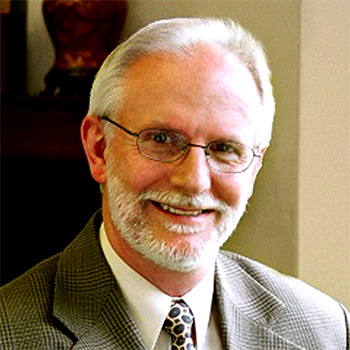
Christopher Mitchell, Theologian, (1951 – 2014) was the third director of the Marion E. Wade Center from 1994 to 2013, and the first holder of the Marion E. Wade Chair of Christian Thought at Wheaton College, Wheaton, Illinois. Mitchell was also the Consulting Editor for VII: An Anglo-American Literary Review (now VII: Journal of the Marion E. Wade Center). Prior to coming to Wheaton College he served as a missionary and pastor. He has published several articles including “C.S. Lewis and Authentic Discipleship,” Knowing and Doing (C.S. Lewis Institute, Spring 2011 Issue.) Mitchell received his M.A. from Wheaton College, and a Ph.D. from the University of St. Andrews, Scotland, where his concentration was Historical Theology with a focus on Jonathan Edwards.
Mere Christianity developed from a series of BBC radio talks delivered by C.S. Lewis during the Second World War. The book is a classic of Christian apologetics and one of the most important apologetics works of the 20th Century. There is an underlying theme to Mere Christianity that even the most careful reader can miss due to the many rich insights and profound wisdom that overflow its pages. In this study course, Dr. Christopher Mitchell, Former Director of the Marion Wade Center at Wheaton College, helps us dive deeper into Lewis’s work and shares insights and lessons from Mere Christianity.
C.S. Lewis is probably the most influential practitioner of Christian apologetics over the last one hundred years. The way he integrated faith, imagination, and reason is both compelling and highly relevant for our times. From his vision of Narnia to the theological underpinings of The Lion, The Witch, and the Wardrobe, this seminar will help believers better understand, and effectively use the life and work of C.S. Lewis.
On June 8th, 1941 C.S. Lewis delivered a sermon in Oxford on “The Weight of Glory.” This weight shaped Lewis’s perspective of humanity and his own calling and place in the world. The vividness by which Lewis perceived the potential eternal destinies of every man and woman compelled him to direct a great part of his energies towards the saving of souls. Lewis sacrificed his own comfort and academic and professional advancement in order to help others know and experience God’s love in Jesus Christ.
C.S. Lewis Courses are provided through the ministry of the C.S. Lewis Institute. EIN: 54-1802015
Our Mission: In the legacy of C.S. Lewis, we develop wholehearted disciples of Jesus Christ who articulate, defend, share, and live their faith in personal and public life.